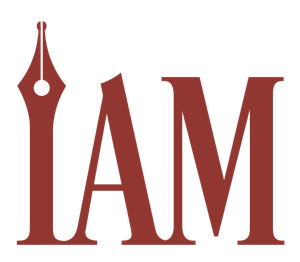Indie Author Magazine: How will the strategy of publishing wide play a part in the future of the industry?
Malorie Cooper: I believe that publishing wide will become more and more important as indie authors shift from relying on the retailers to sell their books and engage in more direct-sales opportunities.
Indie Author Magazine: Do you anticipate that the definition of wide will ever evolve to mean more? If so, where do you see authors going?
Malorie: I think this has already occurred. Wide still means "not in KU", but it has shifted from opening up sales on the other retailers to enabling authors to direct sell via systems like Kickstarter, Indiegogo, their own sites, and via co-ops.
Indie Author Magazine: On an individual level, direct publishing can equate to greater control over titles, greater royalties, and a closer relationship with readers. What will the trend of authors publishing direct mean for the industry as a whole?
Malorie: I believe we are on the cusp of a sea-change surrounding how digital assets are distributed and sold to customers. I don't have a (functional, yet) crystal ball, but I would wager that in 5 years, the traditional retailers will be far less important to book sales. In 10 years, they may be largely irrelevant as direct sales systems mature and book advertising improves.
Indie Author Magazine: With AI being such a hot-button, divisive topic now, what role(s)—if any—do you think it will play in the indie publishing world in five years' time?
Malorie: I draw a lot of parallels between AI and the automotive industry. Before the automotive industry came along, most people that wanted to move any distance where there wasn't a train took a horse, and even when you got there, you were likely to rely on horses for transportation. When cars first came out, there was an uproar in industries potentially affected by them. Similarly, I think producing writing without AI will become niche. People might still do it out of love or for targeting niche areas, where the time investment can be justified.
Indie Author Magazine: How important is technology to one's success as an indie author and to the industry as a whole?
Malorie: Technology is immensely important. Without it, we would need scribes or would be relying on outdated methods for book production. We've democratized access to technology, allowing more people to share their stories. This opens up a world of storytelling capacity that was once restricted to a privileged few.
Indie Author Magazine: What does transmedia mean for an author's business? Will indie authors ever need to be more than just "writers" to survive in the industry?
Malorie: Many indie authors already expand their reach through transmedia. The East Coast model of providing additional content and the West Coast model of reaching audiences across multiple mediums both offer value. Superfans consume across these mediums, creating new streams of revenue and enriching the narrative experience.
Indie Author Magazine: What can authors do now to build community with their readers and within the industry?
Malorie: Prebuilt locations like social media are great for community building, with Facebook groups being popular. Platforms like Discord are growing for community and author-reader interaction. Building one-on-one connections through newsletters and social media posts is also powerful in fostering relationships with readers.
Indie Author Magazine: Why does community matter in the future of indie publishing?
Malorie: Community builds superfans, who are invaluable as advertising tools. They consume all your content and bring others to it, driving organic growth. This type of growth is sustainable and beneficial in the long term.


